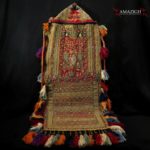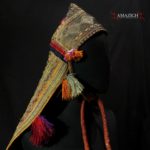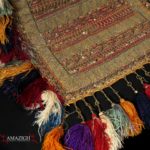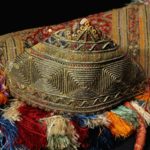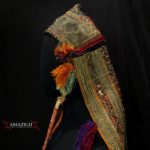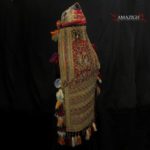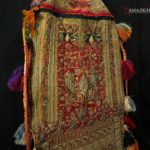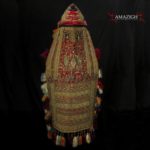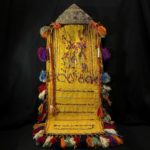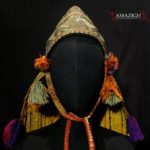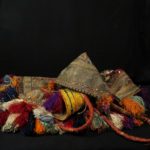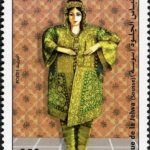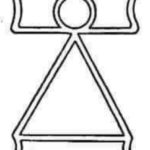Outstanding Antique Berber Wedding Headdress – Kufiya – Jelwa Ritual, Tunisia
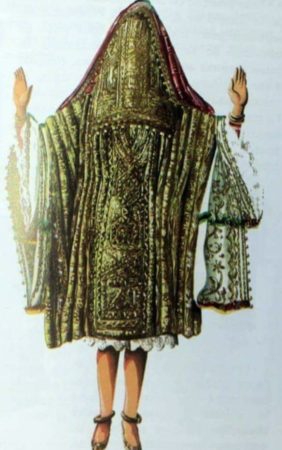 Early 20th century. Cotton, silk, silver thread embroidery. The piece is cm. 88,0 in length (34.65″); cm. 100,0 with the silk popons (39.37”); cm. 36,5 width (14.37).
Early 20th century. Cotton, silk, silver thread embroidery. The piece is cm. 88,0 in length (34.65″); cm. 100,0 with the silk popons (39.37”); cm. 36,5 width (14.37).
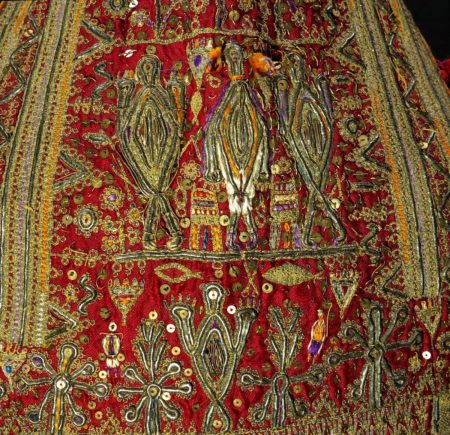 El-Jelwa is a Tunsian traditional ritual that it still maintained in some regions, where the bride, in her henna day, covers her head and put her arms perpendicularly, while prayers and songs are sung to her.
El-Jelwa is a Tunsian traditional ritual that it still maintained in some regions, where the bride, in her henna day, covers her head and put her arms perpendicularly, while prayers and songs are sung to her.
It is believed that this is tradition has its roots from Punic Carthage. The Carthaginian bride visits the Tanit altar, the goddess of fertility and love and prosperity, the night before her wedding. And does the same pose while turning around it seven times, to bring prosperity and good luck to the marriage.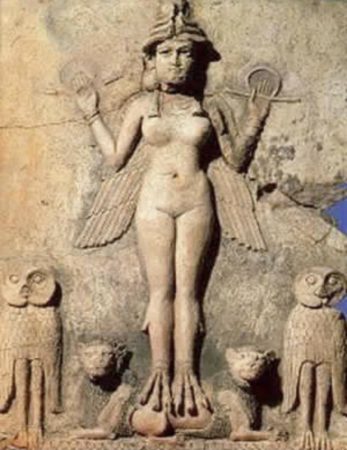
For similar example see pag 45 of “Costumi e Tessuti dell’Africa – Dai Berberi agli Zulu” – collezione Zaira e Marcel Mis, by Anne-Marie Bouttiaux, Freida Sorber, Anne van Cutsem.
The Imazighen (singular Amazigh) also known as the Berbers are among the original peoples of North Africa. Their myths. Legends and history span 9,000 years, back to the Proto-Mediterraneans. They have achieved unity by keeping up their unique language and culture which are, like their land, both African and Mediterranean.
m21
- Additional information
Additional information
| Weight | 2050 g |
|---|














